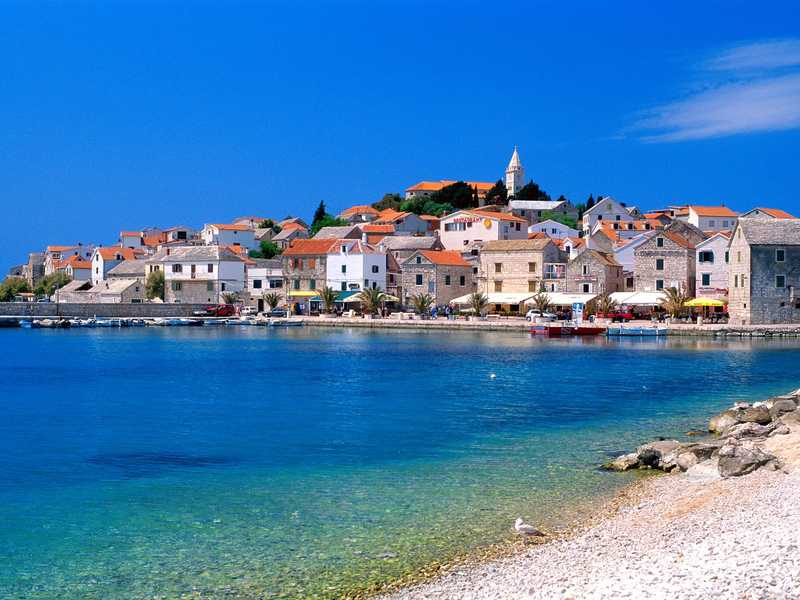| around 400BC |
the first Greek colonies are founded on Adriatic islands |
| around 100BC |
Romans rule over the east coast of Adriatic |
| 305. |
Roman emperor Diocletian in present-day Split |
| around 600. |
Croats start moving to what is today Croatia |
| 852. |
Duke Trpimir issues the Charter in which for the first
time is mentioned the name Croatia, in domestic official
documents. |
| 925. |
Tomislav, the first Croatian king is mentioned, unifier
of Pannonian and Dalmatian Croatia |
| 1102. |
After the death of Petar Svacic, the last Croatian king,
Croatia enters into a union with Hungary |
| 1242. |
King Bela IV issues the Golden Bull in which he
proclaims Zagreb a Free Royal City |
| 1433. |
The beginning of defense against the Turks, who through
time occupy the larger part of Croatian territory |
| 1527. |
By a decision of the Croatian Assembly, the dynasty of
Habsburg comes to the Croatian throne |
| 1699. |
Croatia is largely liberated of Turkish rule;
continental Croatia remains under the rule of Habsburg,
and the largest part of the
Adriatic coast and islands are under Venice; only
Dubrovnik Republic remains completely independent |
| 1815. |
After the short-term rule of the French under Napoleon,
who abolished Venice and Dubrovnik Republic, almost the
whole of
present-day Croatia enters into the Habsburg Monarch |
| 1847. |
Croatian becomes the official language of Croatia in
Croatian Parliament (Sabor), replacing the Latin language |
| 1848. |
Ban (Viceroy) Josip Jelacic defends Croatia against
attempts of Hungarian occupation and unites all Croatian
provinces |
| 1866. |
Bishop Josip Juraj Strossmayer founds the Croatian
Academy of Arts and Sciences, the first in southeastern
Europe |
| 1918. |
After the downfall of the Austro-Hungarian Monarchy in
World War I, Croatia becomes part of the Kingdom of Serbs,
Croats and Slovenes, later proclaimed Yugoslavia |
| 1941. |
German and Italian forces occupy Yugoslavia; the
organized partisan resistance starts, led by Croatian
antifascists under
the guidance of Josip Broz Tito |
| 1945. |
The Federative Socialist Republic of Yugoslavia is
proclaimed and within Yugoslavia, today's Croatia is a
federative republic |
| 1990. |
The first
multiparty elections after World War II are organized in
Croatia; the Croatian Assembly elects Dr. Franjo Tudjman
as the first president |
| 1991. |
Croatia proclaims independence; the Serbian rebellion
starts, supported by the Yugoslav National Army from
Belgrade and
results in the occupation of one third of Croatian
territory |
| 1991-1995. |
War between Croatia and Serbia. 1992 The Republic
of Croatia becomes a member of the United Nations |
| 1998. |
The last occupied
part of Croatia, in the east, including Vukovar, is
integrated into the country. |
| 12/1999. |
The First Croatian President, Franjo Tuđman, died |
| 1/2000. |
On the general elections, late president's ruling party
(HDZ) lost the election. The coalition of 6 parties is now
in power. |
| 12/2003. |
On the general elections, Croatian Democratic Union
(HDZ) has won the election. Together with other 3 parties
and
national minority Members of Parliament forms the
Government |
| 4.10.2005. |
Accession negotiatons between Croatia and European Union
have started |

